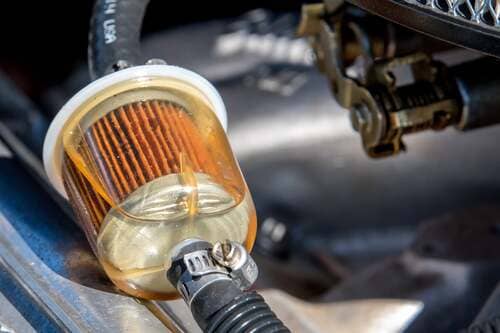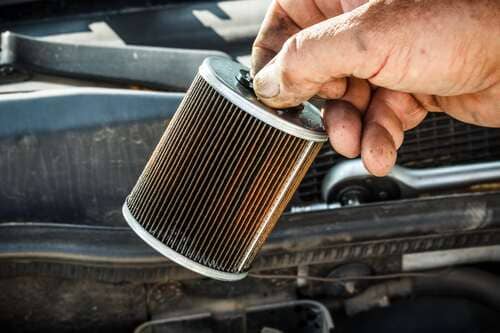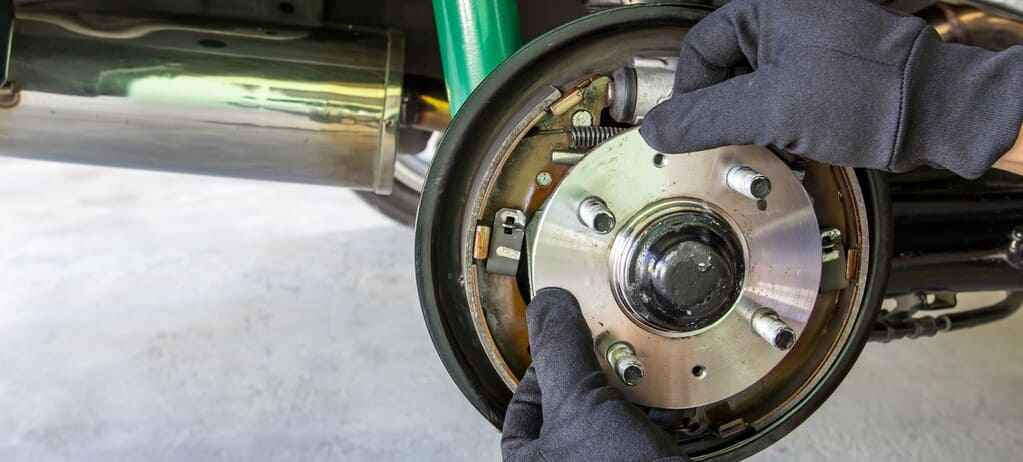
Diesel fuel filters: function and maintenance
Does your car jerk now and then when you accelerate, lose power or have problems starting? These can be signs that it’s time to change the fuel filter. In most cases, you can replace it yourself. This guide will give you useful information and include what the fuel filter is used for, why it is essential to change it regularly, and how you can change it yourself in your car.

What does a fuel filter do?
The fuel, whether petrol or diesel, is stored in the car's tank and pumped from there to the engine. The car fuel tank is sealed and protects the fuel from coarse dirt. However, tiny particles of dirt can still get into the tank, for example when refuelling. In addition, suspended particles form due to microscopic impurities in the fuel. These particles and particulates could pass through the pump into the engine compartment. The petrol or diesel fuel filter for car located between the tank and the engine. The fuel flows through the filter, and in the process, absorbs all impurities, so that only clean fuel enters the engine.
What happens if the filter is clogged?
If the fuel supplied to the engine is less than the amount of fuel required by the engine, the mixture will be leaner than is necessary and there will be misfiring and power will be lost. The engine then goes into a fault-finding mode, which can damage the catalytic converter. If the fuel filter is extremely dirty, it takes more time to reach the optimum pressure in the fuel line causing the engine to have starting problems or cannot be started at all. Modern fuel injection systems with common rail are manufactured with high precision. If the fuel filter is not changed when necessary or a filter with low efficiency is installed, dirt can enter and damage the parts, which are quite costly to replace.
Fuel filter maintenance
The fuel filter doesn’t wear out in the way a mechanical component does, but it becomes caked with grime and suspended particles and gets clogged up with time. The porosity of the filter decreases and therefore also the fuel pressure. If the filter gets too clogged, the engine will no longer deliver full power. It’s not possible to clean the filter therefore, you have to change it. The manufacturer's service instructions for your car stipulate appropriate change intervals for replacing fuel filters or perhaps the BOSCH fuel filter. So if you stick to the car's specified service intervals, you will automatically change the petrol or diesel filter in time. As a rule, you should change the filter around 30,000 miles or two years, depending on the filter and the car. You can also change the filter sooner if you want - perhaps during another type of maintenance service.

Symptoms of a defective fuel filter
A clogged fuel filter must be replaced immediately as it is impeding the flow of fuel to your engine. This rarely shows up as a complete defect, but as symptoms that appear gradually. Signs that indicate you should change the dirty or defective petrol or diesel filter include your car jerking or poor response when you accelerate and the engine light might turn on as well.
At first, these symptoms seem harmless for your car. However, the lack of fuel results in dirty combustion. The engine produces more pollutants and gets sooty. This can lead to harmful deposits and, in extreme cases, to engine damage, so you would have to replace more parts. If any of the above symptoms occur, you should take a look at the fuel filter and change it if necessary.
Replacing the fuel filter yourself
You can easily change the filter yourself. You can find the necessary tools in a well-stocked workshop, garage, or online. If you are not confident enough to change the diesel or petrol filter, you can of course have it changed in a workshop. It doesn't matter whether the filter is changed after the service interval or because of a clogged filter: You will have to expect higher costs at the workshop due to the additional labour costs.
TOP products on the subject:




































